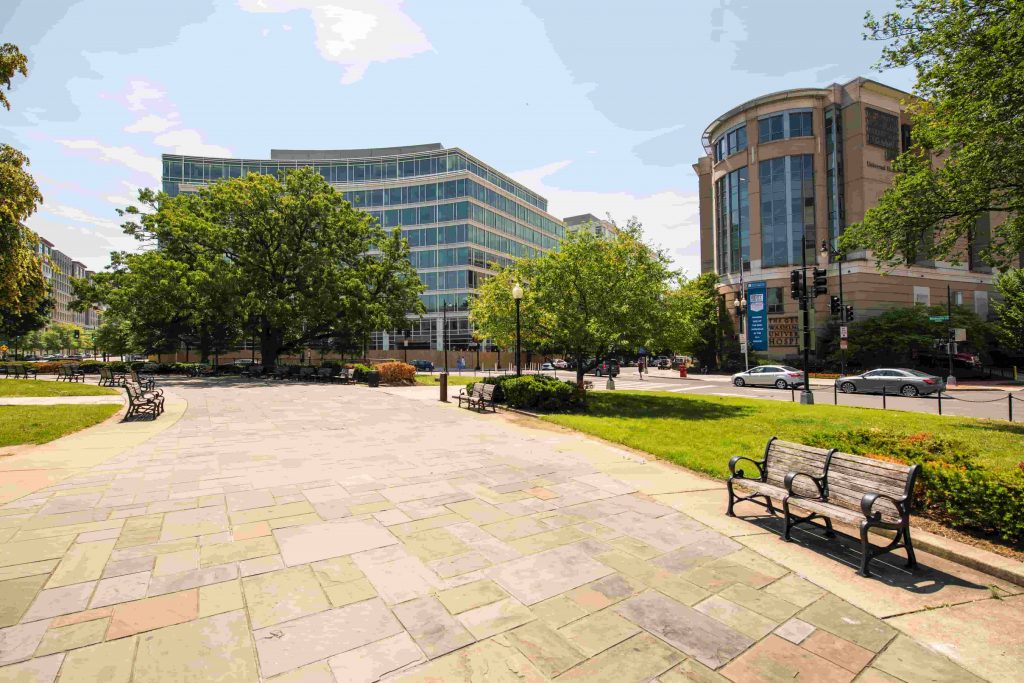Commercial and residential real estate are excellent investment opportunities for both beginner and seasoned investors, but the former may offer a better return on investments than the latter. Commercial real estate typically has an annual return of the purchase price between 6 percent and 12 percent, depending on the location, which is much higher than single-family homes’ 4 percent at best.
Getting ready to buy your first property can be exciting, but this excitement can lead first time investors to make costly mistakes that will affect their cash flows in the long run. This guide will walk you through everything you need to know about putting together an excellent commercial real estate portfolio — including commercial real estate tips on what not to do.
Commercial Real Estate Investment 101
Commercial real estate refers to property used exclusively for business purposes. Such spaces are designed and built to provide offices or work zones rather than living quarters, and are leased to businesses and organizations who use them to conduct income-generating activities. The industry is broad and can cover everything from a single storefront to massive shopping centers.
Commercial real estate categories include:
- Office buildings
- Warehouses
- Industrial buildings
- Retail buildings
- Multi-family including apartments, condos, co-ops, and townhomes
- Hotels
- Special purposes like churches, amusement parks, bowling alleys, and self-storage
Understanding which properties fall under the vast umbrella of commercial real estate is the first step toward solid investing. Let’s take a look at the specific things that will guide your buying process and guarantee you are getting the best deal.
5 Features of Good Commercial Real Estate Investments
Before you buy a commercial property, you must do some due diligence to guarantee sound decisions. Below are some of the most important things to consider before you sign on the dotted contract line.
1. Location
The right property should be strategically situated. Its location determines its accessibility and whether it will attract high-end tenants. Other crucial location-related variables can also negatively or positively affect the property’s value, so do extensive research on the following to inform your investments decisions going forward:
- Accessibility of the location by various means
- The location of the suburb
- The level of competition from similar properties
- The businesses surrounding the property
- The population and zoning number

While you’re at it, it would be beneficial to check the local council zoning laws and regulations to get an idea of the type of business permitted, plus find out from the local government the future development plans in that locality and how they may affect your commercial property.
2. Excellent past performance
Before you buy any commercial property, it is best to research its historical performances and those of similar projects within that locality:
- Prioritize the yield and capital growth performance in the past few months or years.
- Take a look at the current trends to help you achieve a clear picture of the property’s strengths and weaknesses.
- This will also help you project future trends, rent rolls, tenant profiles, and other essential information for making sound investment decisions.
Notably, it also pays to take a look at the performance of the city’s similar projects.
3. Adequate infrastructure
Every city and suburb boasts a unique set of infrastructure designed to support commercial real estate growth. However, specific government strategies play a critical role in determining the kind that goes into specific locations. Necessary infrastructural development that affects the real estate value includes roads, rails, airports, schools, and hospitals.
As such, prioritize properties located within easy access to these items for a more valuable portfolio. Typically, the locations that boast of adequate infrastructure will always see a rise in commercial real estate demand.
4. Financial considerations
Investing in the commercial real estate market is a lot more complicated than funding a residential investment. Here’s what you need to know:
- Before you source funding, you must ask for a credit report review of the property you want to buy.
- A poor credit score can give you challenges when seeking funding from financial institutions and partners.
- The property you invest in should boast of a solid financial standing.
That last one includes the coverage ratio, down payment, and property appraisal, all of which will determine whether your loan is approved.
5. Lease terms
Another critical thing to consider is the lease term of the assets on which you intend to invest. A good property should have lease terms that are long enough to enable you to recover your investments and earn some profit. Some questions to ask when taking lease terms include:
- What is the property’s CPI index?
- What is the lease terms structure — 10, five, three years, and does it have an option to renew?
- Does the property have special council approvals covering child care centers, medical facilities, and chemical treatment centers?
- What are the agreements with tenants who install their own partitions on the property?
All of these considerations make a huge difference in your bottom line. A commercial real estate professional can help you think through each element and answer any questions that arise throughout the decision-making process.
What Not to Do with Commercial Real Estate Investing
There are also simple, yet costly mistakes that you must not do when investing in real estate. When investing pay work closely with the right real estate agent to avoid the following mistakes:
Doing it all on your own
Investing in commercial real estate is a complex process, and it is vital to work with a reliable real estate firm or agent to help with the buying process. Working alone often guarantees costly mistakes that threaten your investment portfolio. Look for a reliable agent who has experience in the commercial property market of your interest.
Failing to do due diligence
When investing in real estate, the need for due diligence before closure cannot be ignored. Critical due diligence processes to undertake include:
- A full inspection of the entire property
- A review of lenders’ underwriting requirements
- Risk assessments review
- Check of existing leases on current tenants
- A search for potential hidden charges and sales terms
- A review of local zoning
- Review of location vs. nature, purpose, and target business
- Review of business profiles of client
- Assessment of future suburb and city plans within the neighborhood
In a nutshell, it is only after you have done due diligence that you should go ahead with your planning and purchases.
Lack of planning and foresight
Any investment in commercial real estate needs significant long-term planning. It is essential to consider your company’s growth trajectory and whether the property will accommodate a future feasible business plan, for example. Planning ahead should also include a reliable exit strategy that guarantees a smooth transition to the next move.
Inaccurate valuations
Using inaccurate property management valuations may result in huge losses for your business in the future. Before you commit to any deal, work with your agents to ensure you know every feature, highlight, detail, and flaw to guarantee you are spending the right amounts.
How to Build a Commercial Real Estate Portfolio
Unlike the stock market, real estate investment offers better cash flow and higher risk tolerance. The big question for most beginner investors is how to start the journey. Here are a few key steps:
- Educate yourself.
The first step to become a leader in real estate assets is to familiarize yourself with the process of buying and owning rental properties. Know how to conduct due diligence, the steps of purchasing rental properties, and the latest trends in the industry, including modern renovation practices.
- Create a plan.
Thorough planning in real estate investments is the hallmark of success. Your planning should be both short- and long-term and cover everything from renovation projects to the planned building projects of the future.

You must come up with an investment strategy that covers unexpected situations and includes a vision for future investments, financial strength, and investment strategies.
- Decide on financing.
Create a budget and determine the available capital to get you started. You may want to consider outside funding, and this is where you bring in a financial advisor. If you are going for traditional lenders, be mindful of their interest rates.
- Invest in the property.
Purchase a property or begin construction only once everything has been extensively vetted and numbers checked. Remember, your lenders and investors will be watching you closely, and it is best to do everything according to the book.
- Expand your business.
Rather than investing all your capital in one niche, focus on several areas,and expand at the right time. Diversification helps mitigate fluctuations, so be sure to branch out, diversify, and grow your business in different asset classes.
Considering Creating a Commercial Real Estate Portfolio?
One big mistake is rushing the process fearing you will lose out on a great offer. It is always advisable to take your time and undertake intensive research. The best properties nearly guarantee sound cash flows and should provide opportunities for diverse opportunities and balanced investments.
If you are interested in real estate investing, contact The Genau Group today to speak with an expert about any commercial real estate portfolio questions you might have






